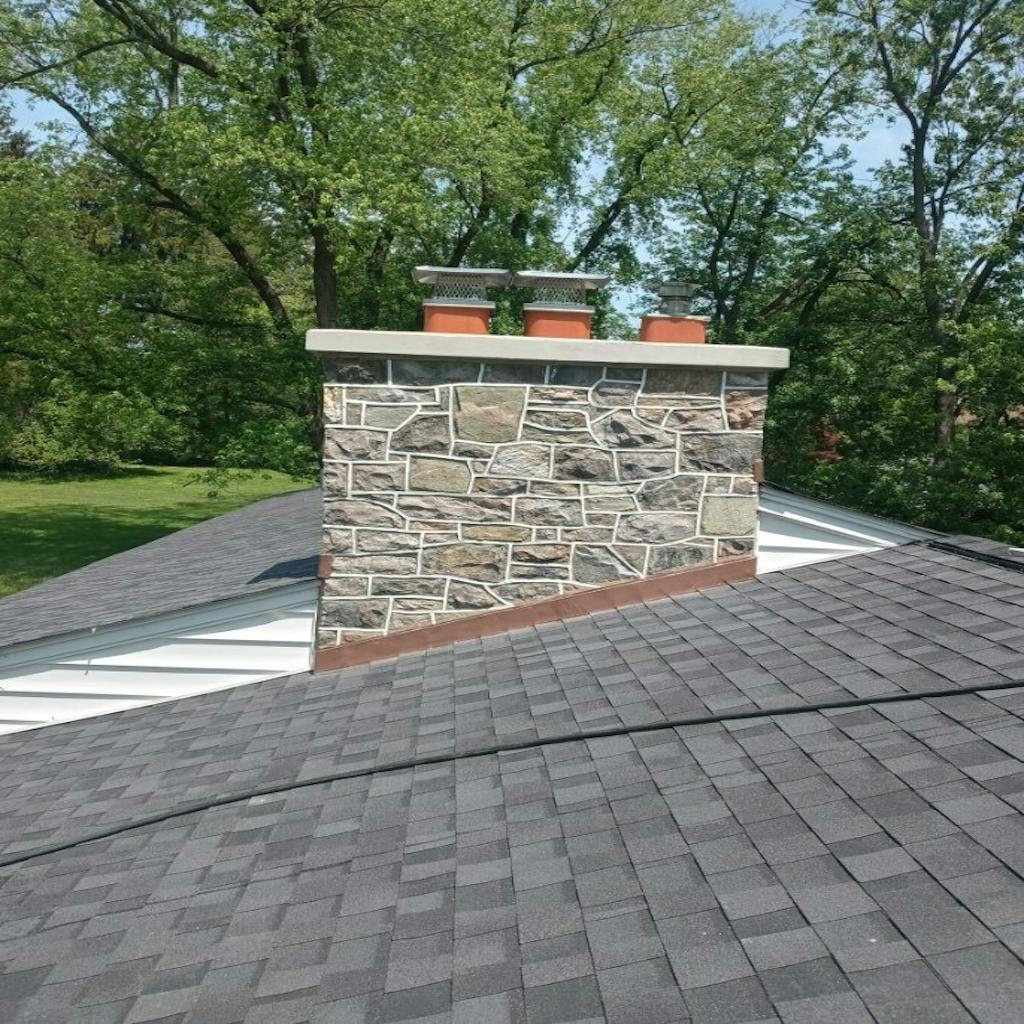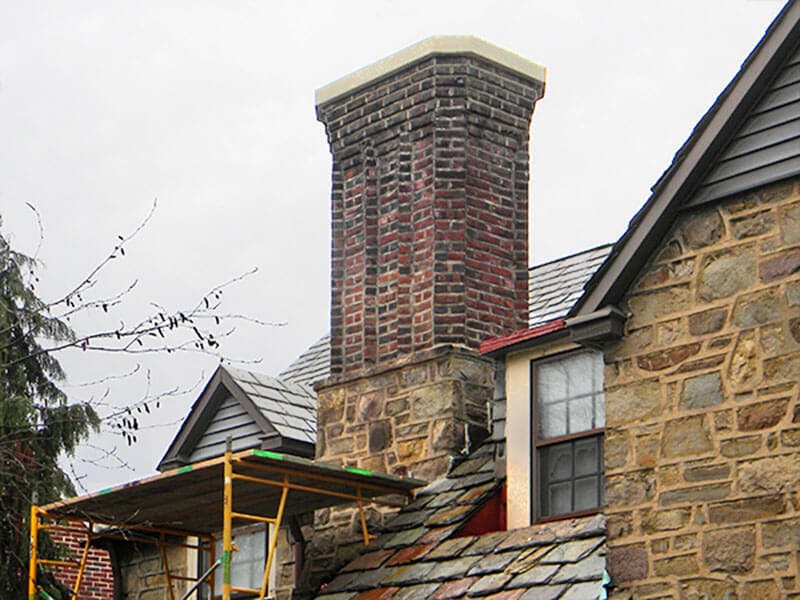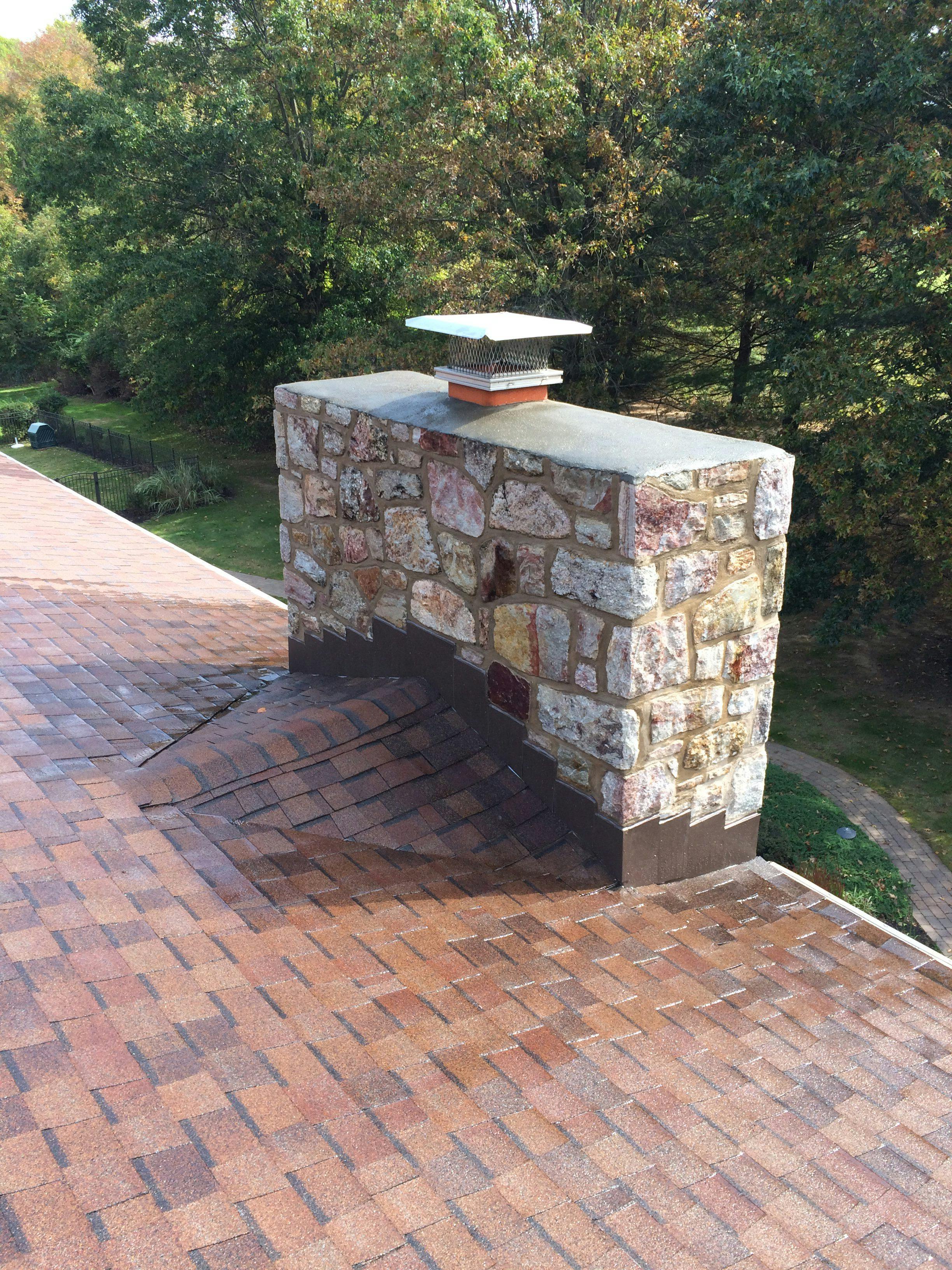Traditional masonry chimneys are still extremely common for a variety of reasons. And chances are you can see many on the homes in your community. If your home has a chimney, it is most likely a masonry chimney. In this article, we’ll cover everything you need to know about your masonry chimney and how to care for it.
What Is a Masonry Chimney?

Whether you have a masonry, prefab, or another type of chimney, it’s important to learn more about it. Each type of chimney requires a different kind of maintenance and care.
Masonry chimneys are the type that often comes to mind for most people. They are typically made with bricks, but there are also stone chimneys that fall under this category.
This type of chimney binds bricks or stones together with non-combustible mortar to create a durable smokestack that withstands extreme heat. When this type of chimney fails or falls apart, it’s almost always the result of years of neglect. A stone or brick chimney can last a lifetime with proper maintenance and care.
There are certain characteristics common among all stone or brick chimneys. These traits can help you identify masonry chimneys.
For example, the chimney’s lining will likely consist of a square or rectangular terra-cotta flue tile. The exterior of the chimney will have a crown made with mortar or cement, and stone or reinforced concrete will form the chimney foundation.
Additionally, the fireplace at the base of the stone or brick chimney will have a wide opening with a pyramid-shaped smoke chamber. The chamber will connect the flue tile to the firebox. The firebox consists of firebrick and refractory mortar that can resist fire and extreme heat.
The Advantages of a Masonry Chimney

If you’re building a new home or replacing the chimney on your existing home, you might feel overwhelmed when it comes to choosing a chimney style. This is an important consideration since the type of chimney you choose will determine how much care you’ll need to put into maintaining it.
In making this decision, it can help to look at the advantages of installing a stone or brick chimney.
Efficiency
Brick and stone chimneys offer higher heat reflection than prefab chimneys made with metal. This means the fireplace stays warmer while more smoke gets directed up through the chimney.
Durability
Stone and brick chimneys last much longer than prefab chimneys. Scheduling an inspection every six months and regularly cleaning the chimney are the only steps required to ensure your brick or stone chimney lasts for several decades.
Appearance
Adding a stone or brick chimney to your home increases its character and curb appeal. It can give your home a traditional, rustic, or modern appearance, depending on the materials used in its construction.
Versatility
You can extend this type of chimney as needed, making it possible to add an outdoor fireplace or stove on your patio. Even if you add these features to your home at a later date, your masonry contractor can match the materials to your existing chimney.
How to Tell When Your Chimney Needs Repairs

It can be difficult to know when to schedule repairs for masonry chimneys if you don’t know the signs of a problem. Here are a few common indications that you need to contact a masonry contractor, such as McNamara Masonry Chimney Restoration, for repairs.
Unpleasant Odors
If you haven’t scheduled regular cleaning for your chimney, you might start noticing an unpleasant, smoky odor in your home. This is due to the buildup of creosote on the inside of your chimney. Creosote is a byproduct of burning wood, which means the compound will build up faster as you use your fireplace more frequently.
Too much creosote will create blockages that inhibit the proper flow of smoke through your chimney. As a result, the toxins produced by burning wood will linger in your home. Scheduling chimney cleaning services can usually correct this problem.
Masonry Damage
From time to time, you should look up at your chimney to identify crumbling mortar or shifting bricks. This type of degradation is common as moisture gets absorbed by the materials. The moisture will cause the materials to expand and lose cohesion. Additionally, masonry degradation might indicate mold growth inside the chimney.
Your masonry contractor can evaluate the repairs needed to restore your chimney, and they can look for mold growth. Scheduling these repairs promptly can ensure your fireplace remains safe to use.
Cracked Crown
The crown on your chimney is there to help protect the interior of the chimney from exposure to the outdoor environment. Just like moisture can lead to the damage of bricks, stone, and mortar, it can also damage the concrete crown. You can discover cracks in the crown sooner through semi-annual inspections.
Water Damage
If you see water stains, leaks, or mold growth on the walls and ceiling near your fireplace, don’t assume you have a roof leak. Moisture damage in your chimney that hasn’t been promptly repaired can worsen. Eventually, water will leak through the flue lining and cause damage to other parts of your home.
When you see water stains or other signs of moisture damage near your chimney, your masonry contractor can help diagnose the problem. If it is a chimney issue, they will be able to offer repair solutions.
Rusting in the Damper or Firebox
Do you see rust forming on the metal components inside your fireplace? If so, it’s best to call for chimney restoration help right away. Even if you don’t see any other signs of water damage, the formation of rust can indicate a leak.
This could be a sign that cracks have formed on the interior of your chimney, or the water exposure could be coming from somewhere else.
Trust Our Experienced Masons
The craftsmanship and materials used to construct masonry chimneys provide a variety of benefits. You can extend the lifetime of your chimney by enlisting the help of McNamara Masonry Chimney Restoration.
Proudly providing superior craftsmanship and customer service since 1989, we handle new chimney builds, repairs, restorations, and other chimney maintenance services. To learn more about our services, contact us today.
